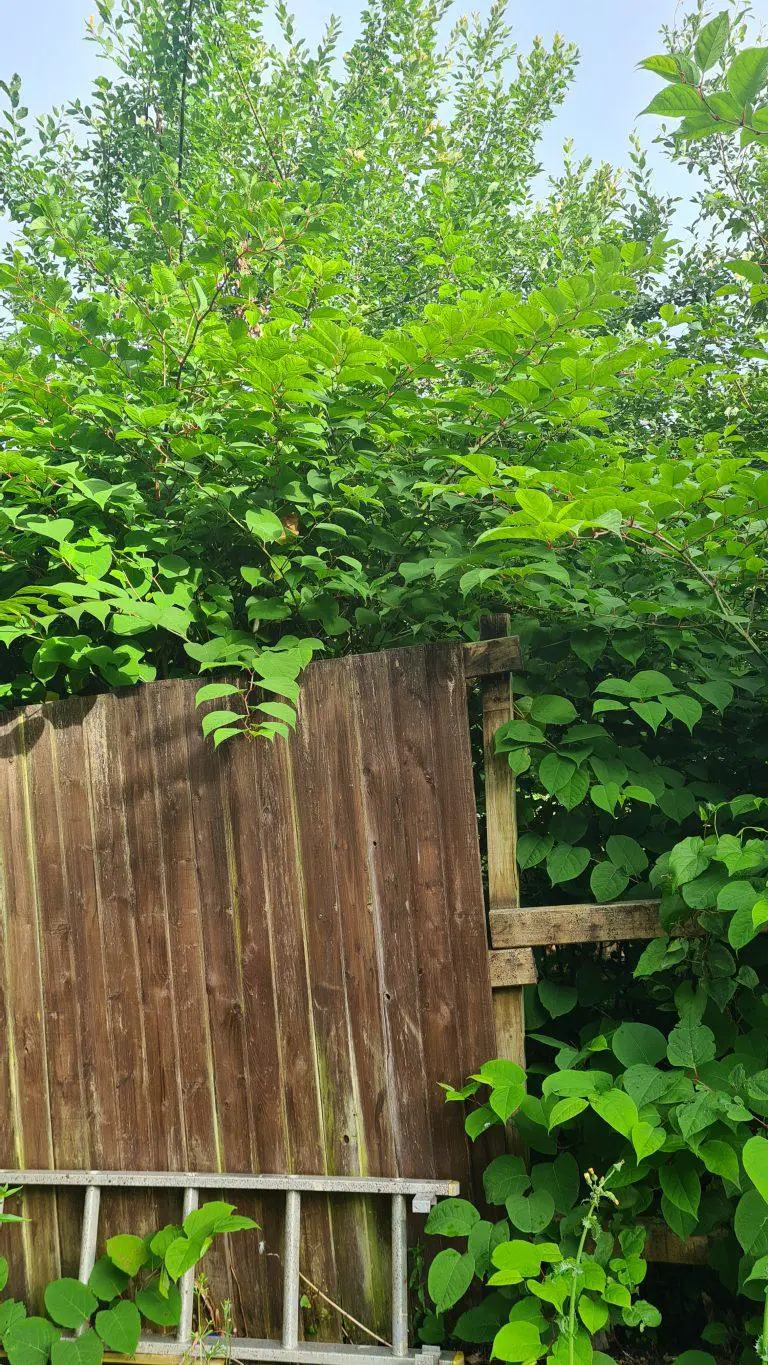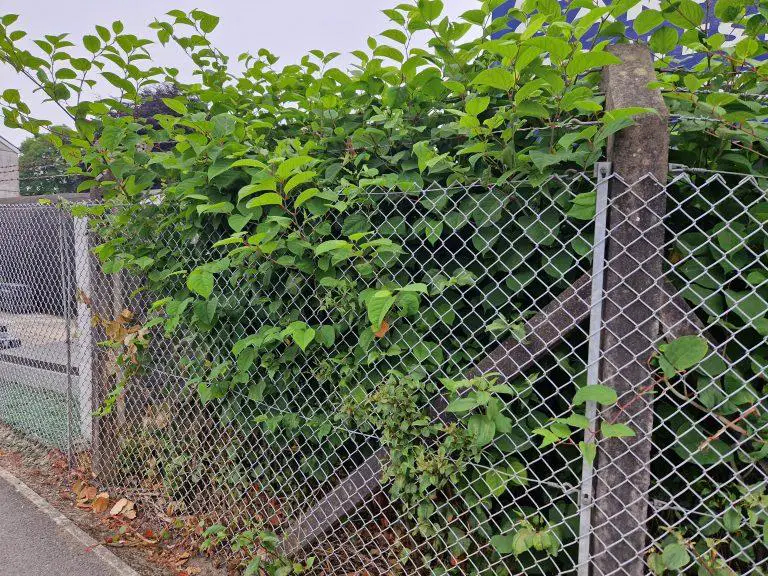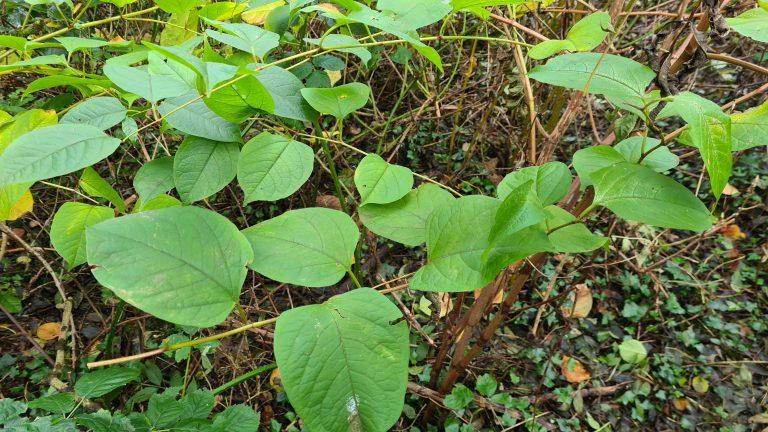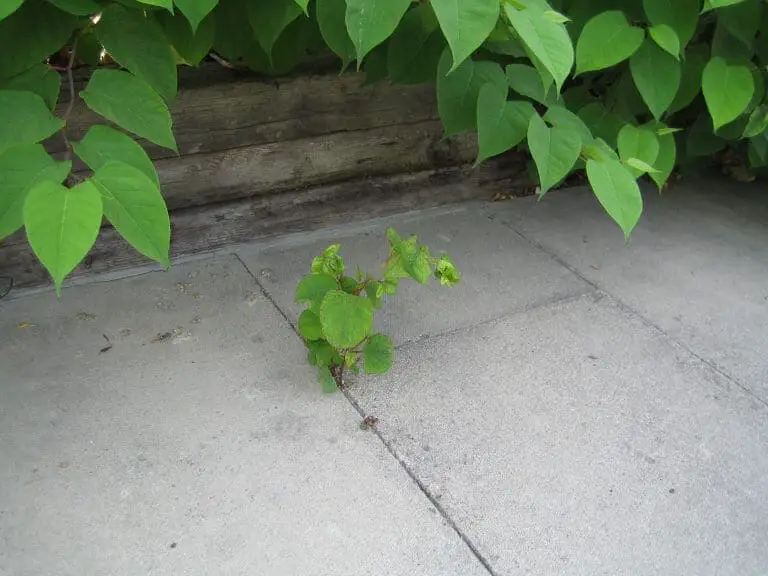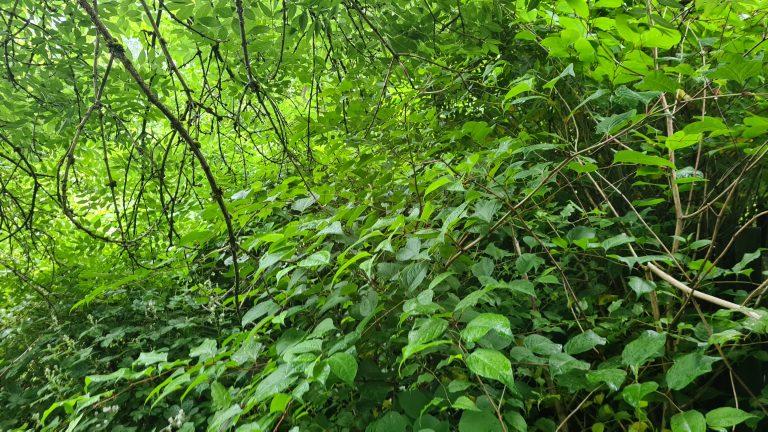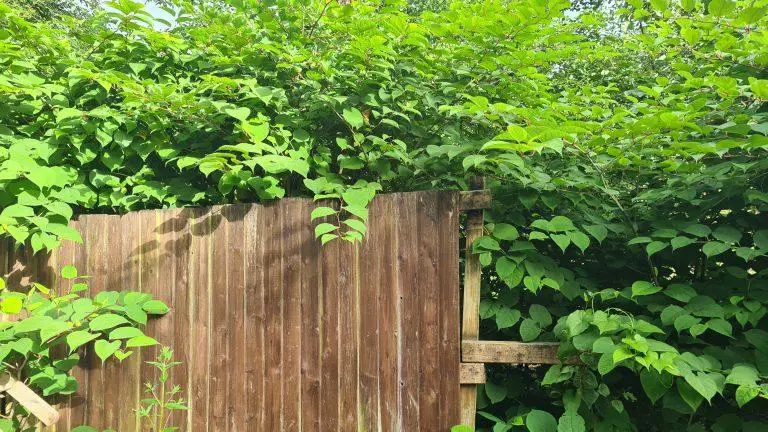Japanese knotweed is an invasive weed that can quickly take over your garden or property.
If you have Japanese knotweed on your property, it’s important to get rid of it as soon as possible. Left untreated, this weed can quickly take over and damage your property.
We offer a variety of herbicides that are specifically designed to kill Japanese knotweed. Our herbicides are safe for use around plants, pets, and people. So what herbicide kills Japanese knotweed?
Check out our shop here for the best herbicides.
What herbicides are available to kill Japanese knotweed effectively and affordably?
There are a number of different herbicides available for controlling Japanese knotweed, but finding an effective and affordable option can be challenging.
Glyphosate is one of the most popular herbicides for controlling this plant, but it is also one of the most expensive. Ultimately, it will prove to be cost-effective over time compared to the potential time, inconvenience and legal issues it can cause.
Another option is imazapyr, which is less expensive but also less effective. The best way to control Japanese knotweed is to use a combination of different herbicides, including both glyphosate and imazapyr. This will give you the best chance of killing the plant while also keeping costs under control.
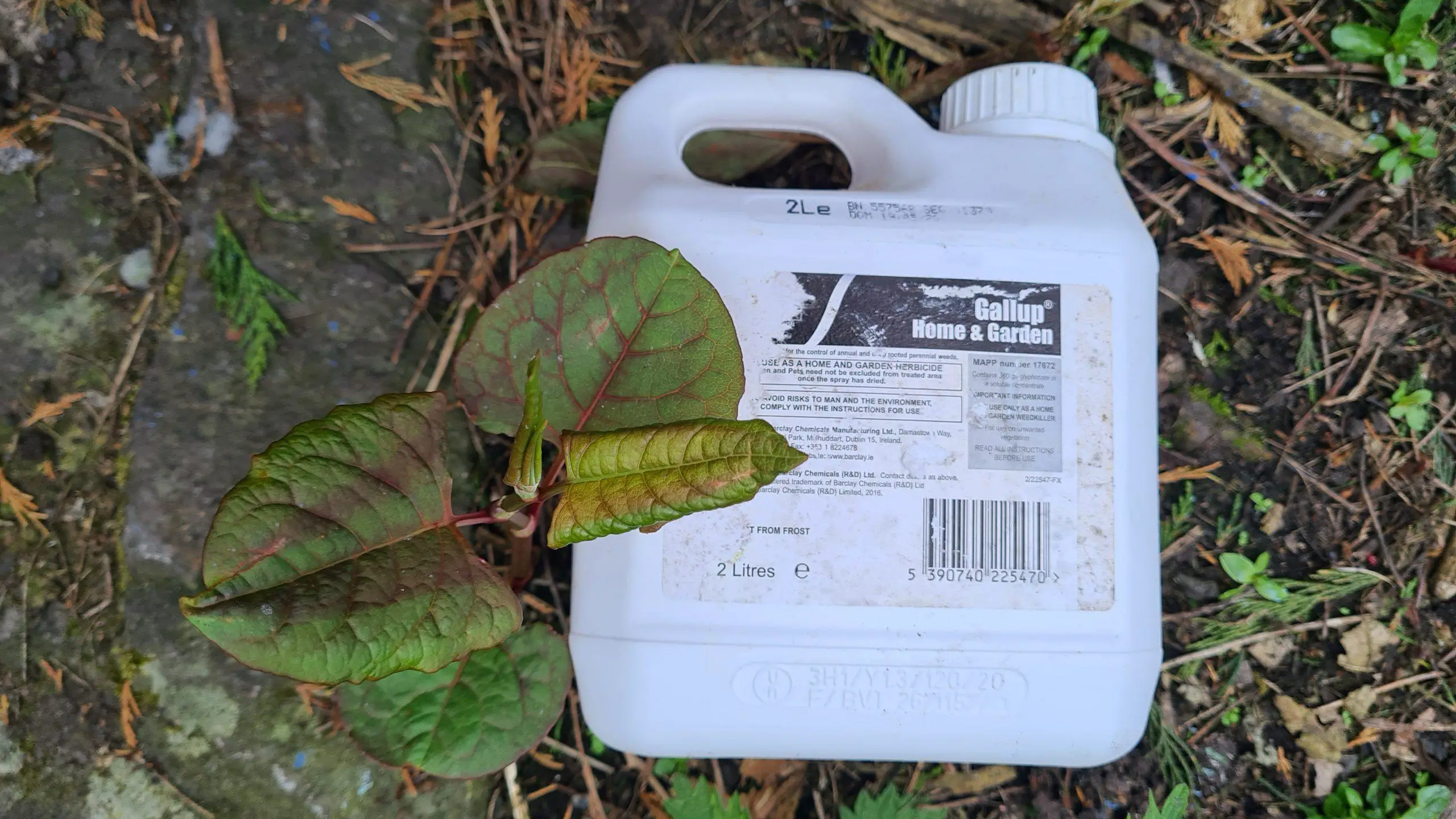
How do you use the herbicide to kill Japanese knotweed?
When using a herbicide to kill Japanese knotweed, it is important to follow the instructions carefully.
First, you will need to cut the plant down to ground level and then apply the herbicide to the exposed roots. Once the herbicide has been applied, you will need to wait for several weeks before replanting it in the affected area.
Glyphosate is a popular choice for killing Japanese knotweed, and it can be applied in a number of different ways.
For example, you can paint the herbicide onto the leaves of the plant, or you can mix it with water and spray it onto the foliage. You can also apply the herbicide to the soil around the plant, which will help to kill the roots.
Whichever method you choose, make sure to follow the instructions on the herbicide label carefully.
Are herbicides safe for the environment?
Herbicides are chemicals used to kill plants, and they come in a variety of formulations. Some common active ingredients in herbicides include glyphosate, 2,4-Dichlorophenoxyacetic acid, and triclopyr.
While herbicides can be effective at controlling weeds, they can also have detrimental effects on the environment.
For example, Japanese knotweed is an invasive plant species that have been proliferating in many parts of the world. In an effort to control this plant, herbicides are often used.
However, these chemicals can also kill native plants and animals, disrupt food webs, and pollute waterways. As a result, it is important to use herbicides carefully and only when absolutely necessary.
What precautions should you take when using a herbicide to kill Japanese knotweed?
If you’re dealing with this problem weed, you may be considering using a herbicide. However, it’s important to take some precautions before taking this step.
First, make sure that you choose a herbicide that is specifically designed to kill Japanese knotweed and is EPA-approved.
Second, carefully read the manufacturer’s instructions and follow them to the letter.
Third, be aware that herbicides can potentially harm other plants and animals, so take care to avoid contact with non-target plants and to keep children and pets away from the area until the herbicide has been completely absorbed.
Finally, remember that Japanese knotweed can regrow from even a small piece of root, so it’s important to remove all roots after treatment thoroughly. By taking these precautions, you can help ensure that your herbicide treatment is effective and safe.
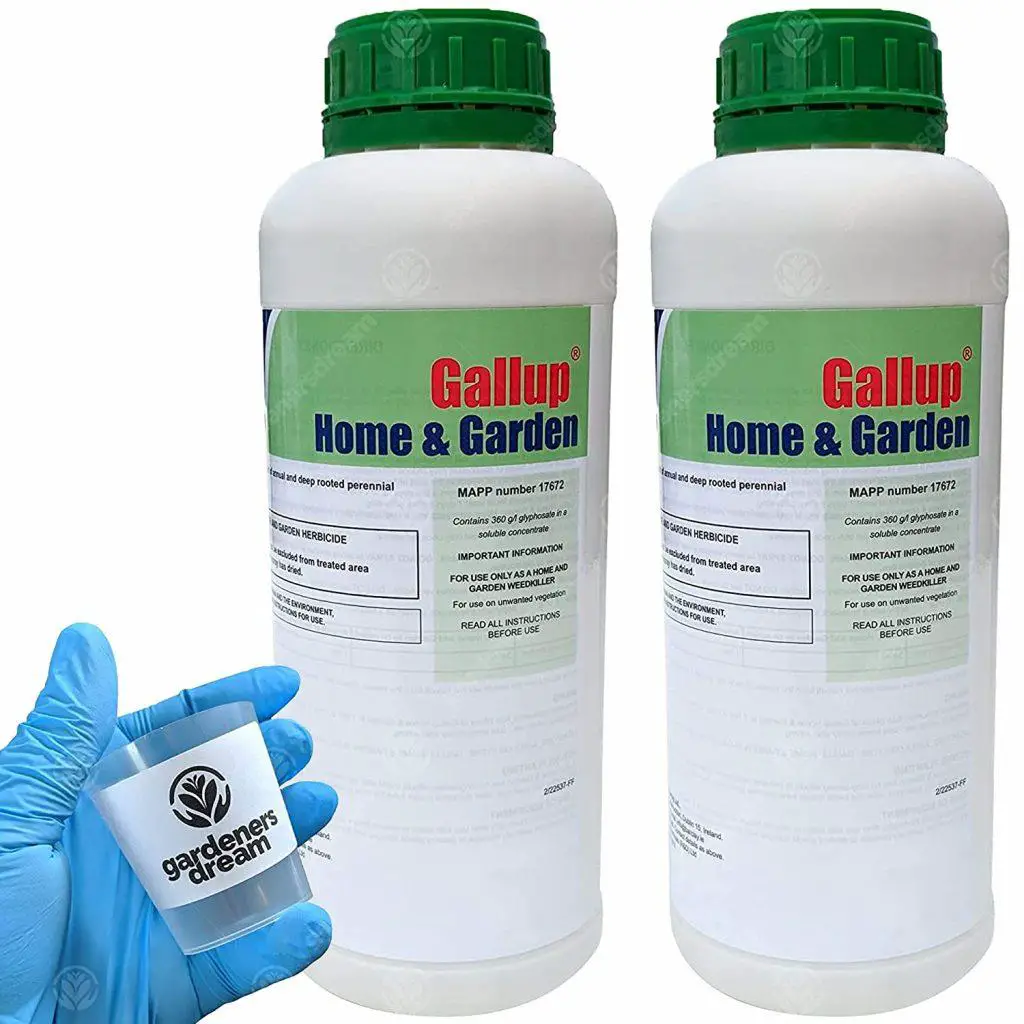
What are the potential short-term risks associated with using a herbicide?
Japanese knotweed is a fast-growing, invasive weed that can cause significant damage to property and infrastructure. While it is tempting to use herbicides to control its growth, there are potential short-term risks associated with this approach.
Herbicides can kill non-target plants, contaminate water supplies, and potentially harm wildlife.
However, there are some potential risks associated with using herbicides on knotweed. For example, if the herbicide is not applied correctly, it may kill other plants nearby.
In addition, if knotweed is allowed to flower and produce seeds, the seeds may be dispersed by animals or wind and create new infestations. Therefore, it is important to be aware of the potential risks before using herbicides on Japanese knotweed.
In addition, they may only be effective for a short period of time, as the knotweed quickly develops resistance. As a result, herbicide use should be carefully considered before being implemented. If used, herbicides should be applied by trained professionals in accordance with safety guidelines.
What are the potential long-term risks associated with using a herbicide?
There are a number of potential long-term risks associated with using herbicides. One of the most common is the spread of invasive plant species.
When herbicides are used to kill native plants, they can also unintentionally kill off the natural predators of invasive species. This can allow invasives like Japanese knotweed to take over an area, crowding out native plants and disrupting the local ecosystem.
Herbicides can also lead to soil erosion and water contamination. When used in large quantities, they can wash away topsoil, pollute waterways, and make it difficult for future plants to take root.
In addition, long-term exposure to herbicides has been linked to a variety of health problems in both humans and animals. These include cancer, endocrine disruption, and reproductive problems. For these reasons, it is important to consider the potential long-term risks before using herbicides in any environment.
How long will it take for the herbicide to kill Japanese knotweed?
Herbicides are the most common method of control, but there is some debate about how long it takes for the herbicide to actually kill the plant. Some research suggests that it can take up to two years for the herbicide to completely kill Japanese knotweed.
However, other studies have found that the plant is much more susceptible to herbicides in the first year of treatment.
As a result, it is generally recommended that treatments be applied for at least two years to ensure complete control. There is also some evidence that certain types of herbicides are more effective than others, so it is important to consult with a professional before beginning any treatment program.
In conclusion
With several effective herbicides on the market, it is best to use one that is tailored to Japanese knotweed only and continue using it until you have eradicated the weed from your property.
This may take several years, but with consistency and a quality herbicide, you can get rid of this weed permanently.
Want to know more about Japanese knotweed?
Knotweed Removal aims to provide the most up-to-date information, help, and advice for YOU to make informed decisions. If you are unsure or uncertain about how to proceed, please reach out to us and we will gladly come back and advise you as best we can.
Governmental advice can be found here and the UK law covering the removal of Japanese Knotweed as stated under the Wildlife and Countryside Act 1981 can be found here.
The best means to contact us is via our email – hello@knotweedremoval.tips
Do not forget we have a library of blogs covering many areas relevant to Japanese Knotweed, our free downloadable How-to Guides, and Product Reviews on the latest methods being employed to eradicate or remove Japanese Knotweed.
Knotweed Removal, UK

